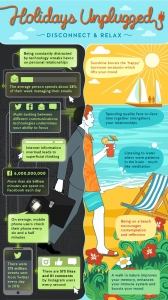Trauma and Anxiety Sufferers Turn to EMDR for Quick Help
by Dr. David Greenfield
EMDR –WHAT IS IT?
EMDR stands for Eye Movement Desensitization Reprocessing. For many people, EMDR can be a very powerful and effective way of neutralizing and creating positive resolutions of troublesome memories or other strong emotions, such as those from trauma, PTSD, or other anxiety–based problems. EMDR can be an effective adjunctive procedure for dealing with various addiction issues. It can also act as an important addition to other therapy and be used even if you are in treatment with another doctor. In doing so, it may facilitate certain areas more rapidly and effectively. EMDR has received approval as an effective first-line treatment for Trauma and Post Trauma Stress Syndrome by the American Psychiatric Association.
HOW MANY EMDR SESSIONS ARE NEEDED?
For someone who wishes to focus on a single recent or past trauma, sometimes a few sessions of EMDR treatment may be sufficient within the context of ongoing therapy. For people with a long history of painful traumatic events, PTSD, or other anxiety related issues, a number of EMDR sessions may be needed to achieve good results. In general, EMDR is a brief and effective means of achieving positive change and results.
HOW DOES IT WORK?
The first part of EMDR is the psychologists or therapist recording a history of the problem during the initial consultation. Part of the treatment process involves inducing rapid eye movement (using alternating light stimulation) which triggers eye patterns similar to what occurs during REM dream sleep. Sometimes we use bilaterally stimulated auditory or tactile stimulation as well. This procedure facilitates troublesome memories and emotions to be recalled and experienced, but be desensitized at the same time. These emotions and thoughts are then reprocessed and neutralized much faster than without the eye movement procedure. For many people this offers palpable release and relief of negative emotions. At the same time, they can reprocess any negative feelings about themselves and replace them with more positive and adaptive thoughts and feelings.
The EMDR processing continues during the treatment sessions(s) which are typically conducted in 90 minutes until all the troublesome memories and feelings have been neutralized. We believe that EMDR helps support an accelerated processing of memory and emotions, which can speed up the healing process
ARE THERE ANY SIDE EFFECTS TO THE EMDR PROCEDURE?
Typically none. Occasionally there can be some fatigue which is usually short lived. If there are ant contraindications for the use of the procedure, this will be discussed in the initial consultation.
HOW DR. GREENFIELD USES IN TREATMENT
Frequently I utilize a combination of traditional and cutting-edge techniques combining psychotherapy, neurophysiologic approaches like EMDR, solution-focused therapy, and Imago Relationship Therapy to produce an effective and results-oriented approach.
For more information on EMDR, please visit our website at https://drdavidgreenfield.com/emdr/


